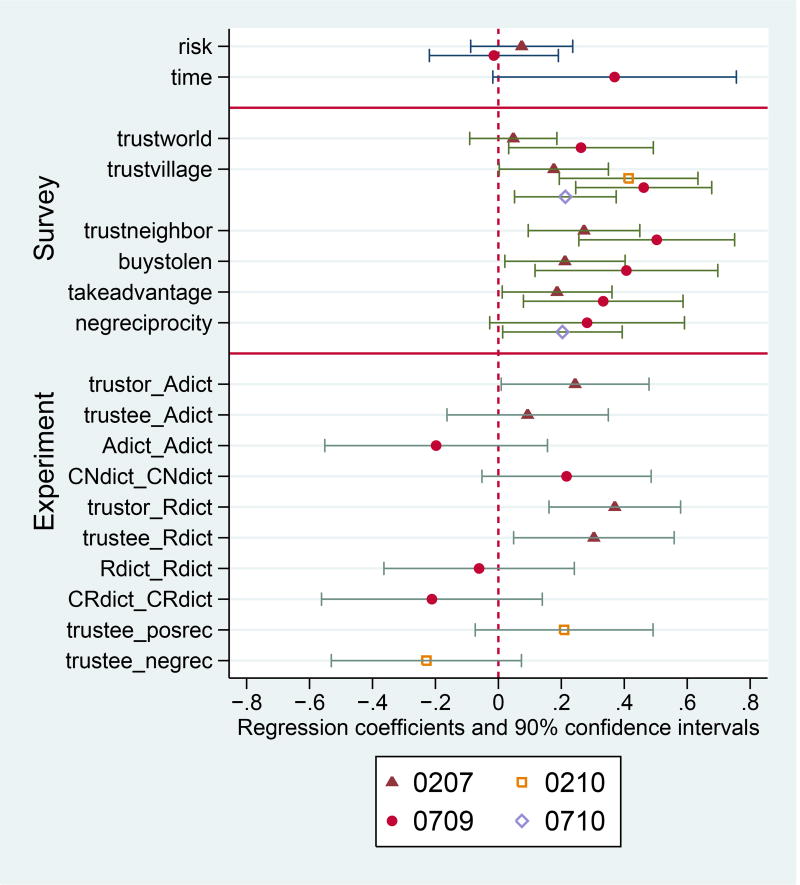Figure 1.
Standardized effects with 90% confidence intervals
This figure shows coefficients from a regression of the standardized preference measured in the later period on the standardized preference measured in the earlier period. Standard errors are robust to heteroskedasticity. Preference variables are standardized to have mean 0 and sd 1. Controls include log income, sex, age, education, and village fixed effects. The top panel looks at risk and time preferences; the middle panel looks at social preferences measured using survey questions; and the bottom panel looks at social preferences measured using experiments. The survey measures of social preferences are: trust world - share of people you trust in the world, trust village - share of people you trust in the village, trust neighbor - share of your neighbors you trust, buy stolen - is it bad to buy something you know is stolen, take advantage - would villagemates take advantage if they had the opportunity, and negative reciprocity - if someone put you in a difficult position would you do the same to that person. The experimental measures of social preferences are: trustor - sent as first mover in trust game, trustee - share returned as second mover in trust game, Adict - amount sent in anonymous dictator game, CNdict - amount sent in chosen non-revealed dictator game, Rdict - amount sent in revealed dictator game, CRdict - amount sent in chosen revealed dicator game, posrec - would reward a middleman who sent him the highest amount, and negrec - would fine a middleman who sent him the lowest amount. If two variables are listed, the first one is from the earlier period and the second one is from the later period.

